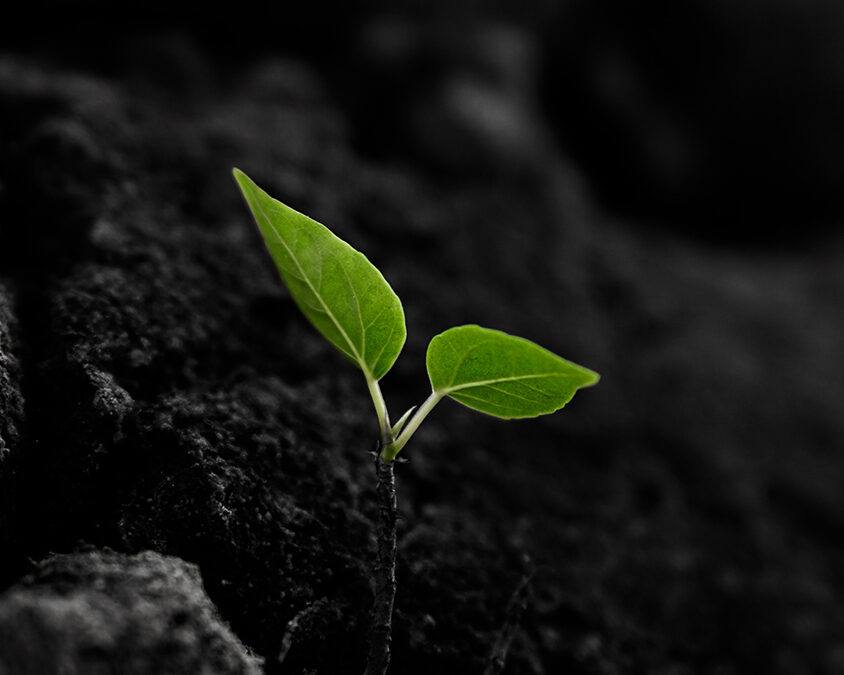One of the big markers for resilience during the COVID-19 pandemic is compassion. The ability to extend compassion to yourself and others while enduring one of the most challenging social and economic moments of a generation is a key emotional aptitude that offers more benefits than may appear on the surface. Compassion is the gateway to tending to yourself with gentleness during this time. It also helps to move through roadblocks like the “six-month wall” that can otherwise feel like trying to draw water from an empty well.
Let’s explore the wall metaphor further, with help from the University of Toronto’s Dr. Aisha Ahmad, who works in international security and disaster management when she’s not teaching.
We’re well past the six-month mark of pandemic living now, but the transition to cold weather acts similarly because we’re forced to adapt once again to new restrictions and circumstances. Many people are definitely feeling a certain type of way about the months ahead, knowing the pandemic is further ramping up in many regions. Here in Vancouver, less sunlight, fewer opportunities to be outside, and tight (or nonexistent) social bubbles are the reality. There’s a sense that time is just barreling along without us while we try to sustain a semblance of mental health.
It sounds bleak, and it feels that way for lots of us. Dr. Ahmad says it’s completely normal to feel antsy, hopeless, and emotionally exhausted during longstanding crises like this. She says that desires to “get away” or “make it stop” can be intense, especially when there’s nowhere to run to. Slumps are to be expected, so try to reserve some compassion for those feelings. It takes extra emotional energy to push back against our reactions to stress, trauma, and grief, all of which are relevant to the wholesale changes brought on by the pandemic.
One of the more helpful (and free) mental health resources for the pandemic is recognizing that any feelings that bubble up are legitimate and worth addressing. We are grieving lots of things: for some it’s physical touch and social connections, for others it’s financial stability, and the list goes on. Being thrust into unfamiliar territory affects everyone differently. What’s likely the way through is going straight into the newness and finding the support you need while you’re in it. It’s not forever, it’s just for now.
That said, Dr. Ahmad has a few tips to nudge along the creative adaptation that helped back in March when we had to adjust to the first wave of changes.
Since then, we’ve already adjusted the very basic activities of living, like grocery shopping and socializing, and have investigated new ways to find variety in our lives. The first piece of advice is to find that mindset again. “Get ready to innovate again,” Dr. Ahmad says. Remember the novelty of virtual hangouts? Try to summon the patience and whimsy to try a new strategy to cope with something you’re struggling with. Maybe it’s a virtual board game, maybe it’s digging out some old rain pants and braving the outdoors for a walk, despite the rain. Whatever the innovation is, give it a chance.
Dr. Ahmad’s next piece of advice is more inward-facing than action-based: cut yourself some slack. It’s taken some real brain gymnastics to get ourselves this far while maintaining momentum and caring for our mental health. “Don’t try to force a breakthrough,” she says. In fact, cutting back on non-essentials and allowing yourself to focus on meeting your pressing obligations is just fine. It’s okay to clear a few things off your plate in order to care for yourself.
This time has been especially hard for those whose livelihoods are tied to essential services and the underdeveloped social safety net; low-income, frontline, contract, and precariously employed people don’t have the same luxury of taking time off for the purposes of self-preservation. Treading water is okay. Hitting the emotional wall is okay. Have compassion for yourself and trust that this transitional period will pass, just like the last one did.
Some final thoughts from Dr. Ahmad:
“Take heart. We have navigated a harrowing global disaster with resourcefulness and courage. We have already found new ways to live, love, and be happy under these rough conditions. A miracle and a marvel. This is hard proof that we have what it takes to keep going. So, dear friends, do not despair. [These feelings] are not permanent, nor will it define you in this period of adversity. Trust the magic that helped you through the first phase is still there. Take a breath and pause. You’ll be on the other side in no time.”
If you are finding this time to be taking a toll on your mental health or wellbeing, please reach out using the contact form below. There are number of sliding scale online therapy spaces available to increase accessibility for the people who need it. Online counselling services are provided by Y. Bonnie Chi RCC, CCC in Vancouver and the Lower Mainland, BC.
How does this work?
If I had to wager a guess, you’re here to figure out whether I am a good fit to be your therapist. The fastest way to do that is to schedule a free consultation, and go from there!

